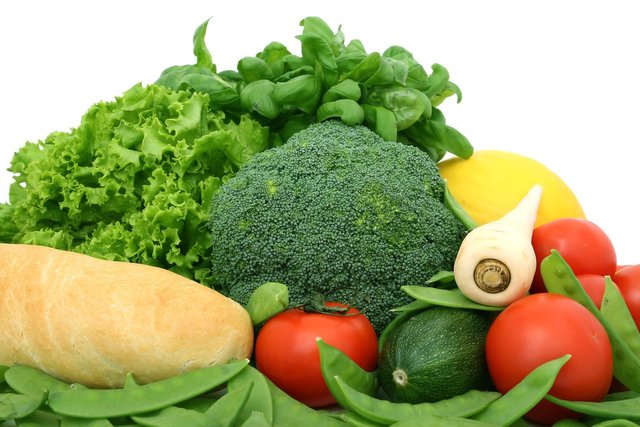The End Result For Your Brain When You Eat Junk Food
A large portion of us realize that low quality nourishment is unfortunate. We realize that poor sustenance is identified with heart issues, hypertension, and a large group of other wellbeing diseases. You may even realize that reviews demonstrate that eating low quality nourishment has been connected to increments in discouragement.
However, in the event that it's so terrible for us, for what reason do we continue doing it?
There is an answer. Also, the science behind it will astound you.

Image Source: Pixabay under the CC0 Creative Commons
Why We Pine for Low quality nourishment

Steven Witherly is a sustenance researcher who has put over the most recent 20 years contemplating what makes certain nourishments more addictive (and scrumptious) than others. A great part of the science that takes after is from his superb report, Why Humans Like Junk Food.
As indicated by Witherly, when you eat scrumptious sustenance, there are two factors that make the experience pleasurable.
To start with, there is the impression of eating the nourishment. This incorporates what it possesses a flavor like (salty, sweet, umami, and so forth.), what it smells like, and how it feels in your mouth. This last quality — known as "orosensation" — can be especially vital. Nourishment organizations will burn through a large number of dollars to find the most fulfilling level of mash in a potato chip. Their researchers will test for the ideal measure of fail in a pop. These elements all consolidate to make the vibe that your mind partners with a specific nourishment or drink.
The second factor is the real macronutrient cosmetics of the sustenance — the mix of proteins, fats, and starches that it contains. On account of low quality nourishment, sustenance producers are searching for an ideal blend of salt, sugar, and fat that energizes your cerebrum and makes you return for additional.
Here's the means by which they do it…
How Science Makes Cravings
 Image Source: Pixabay under the CCO Creative Commons
Image Source: Pixabay under the CCO Creative Commons Dynamic complexity. Dynamic complexity alludes to a mix of various sensations in a similar nourishment. In the expressions of Witherly, nourishments with dynamic differentiation have "a palatable shell that goes crunch took after by something delicate or velvety and loaded with taste-dynamic mixes. This lead applies to an assortment of our most loved nourishment structures — the caramelized best of a creme brulee, a cut of pizza, or an Oreo treat — the mind finds crunching through something like this exceptionally novel and exciting."
Salivary reaction. Salivation is a piece of the experience of eating sustenance and the more that a nourishment makes you salivate, the more it will swim all through your mouth and cover your taste buds. For instance, emulsified nourishments like spread, chocolate, serving of mixed greens dressing, frozen yogurt, and mayonnaise advance a salivary reaction that foams your taste buds with goodness. This is one motivation behind why numerous individuals appreciate nourishments that have sauces or coatings on them. The outcome is that sustenances that advance salivation complete an upbeat little tap move on your mind and taste superior to anything ones that don't.
Quick sustenance emergency and vanishing caloric thickness. Nourishments that quickly vanish or "soften in your mouth" flag to your mind that you're not eating as much as you really may be. As such, these sustenances truly tell your cerebrum that you're not full, despite the fact that you're eating a considerable measure of calories.
The outcome: you have a tendency of overeating.
In his top rated book, Salt Sugar Fat (book recording), writer Michael Greenery portrays a discussion with Witherly that clarifies vanishing caloric thickness flawlessly…
I carried him two shopping packs loaded with an assortment of chips to taste. He focused right in on the Cheetos. "This," Witherly stated, "is a standout amongst the most radiantly developed sustenances on the planet, as far as unadulterated delight." He ticked off twelve traits of the Cheetos that influence the cerebrum to state more. Be that as it may, the one he concentrated on most was the puff's uncanny capacity to liquefy in the mouth. "It's called vanishing caloric thickness," Witherly said. "In the event that something dissolves down rapidly, your mind imagines that there's no calories in it . . . you can simply continue eating it until the end of time."
Tactile particular reaction. Your cerebrum likes assortment. With regards to sustenance, in the event that you encounter a similar taste again and again, at that point you begin to get less joy from it. As it were, the affectability of that particular sensor will diminish after some time. This can occur in not more than minutes.
Lousy nourishments, be that as it may, are intended to keep away from this tactile particular reaction. They give enough taste to intrigue (your mind doesn't become weary of eating them), yet it's not all that fortifying that your tactile reaction is dulled. This is the reason you can swallow a whole sack of potato chips and still be prepared to eat another. To your cerebrum, the crunch and impression of eating Doritos is novel and intriguing unfailingly.
Calorie thickness. Low quality nourishments are intended to persuade your cerebrum that it is getting sustenance, however to not top you off. Receptors in your mouth and stomach educate your mind regarding the blend of proteins, fats, starches in a specific nourishment, and how filling that sustenance is for your body. Low quality nourishment gives simply enough calories that your cerebrum says, "Truly, this will give you some vitality" yet not all that numerous calories that you believe "Stop, I'm full." The outcome is that you ache for the sustenance in any case, yet it sets aside very some opportunity to feel full from it.
Recollections of past eating encounters. This is the place the psychobiology of shoddy nourishment truly conflicts with you. When you eat something delectable (say, a sack of potato chips), your mind enrolls that inclination. Whenever you see that nourishment, notice that sustenance, or even read about that nourishment, your mind begins to trigger the recollections and reactions that came when you ate it. These recollections can really cause physical reactions like salivation and make the "mouth-watering" longing for that you get when pondering your most loved sustenances.
The greater part of this conveys us to the most essential inquiry of all.
Nourishment organizations are burning through a great many dollars to plan sustenances with addictive sensations. What would you and I be able to do about it? Is there any approach to neutralize the cash, the science, and the promoting behind the shoddy nourishment industry?
The most effective method to Kick the Lousy nourishment Propensity and Practice good eating habits

 Image Source: Pixabay under the CCO Creative Commons
Image Source: Pixabay under the CCO Creative Commons Whatever you need to call it, the exercise is the same: in the event that you can discover approaches to step by step eat more beneficial, you'll begin to encounter the longings of lousy nourishment less and less. I've never asserted to have every one of the appropriate responses (or any, extremely), however here are three techniques that may help.
Utilize the "external ring" methodology and the "5 fixing standard" to purchase more advantageous sustenance.
The best strategy is to abstain from purchasing handled and bundled nourishments. On the off chance that you don't possess it, you can't eat it. Moreover, all things considered, you can't be baited by it.We've discussed the intensity of shoddy nourishment to pull you in and how recollections of delectable sustenance in the past can make you hunger for a greater amount of it later on. Clearly, you can't keep yourself from regularly pondering lousy nourishment, yet there are approaches to lessen your desires.
To start with, you can utilize the "external ring" technique to stay away from handled and bundled sustenances at the market. On the off chance that you restrict yourself to acquiring sustenances that are on the external ring of the store, at that point you will by and large purchase entire nourishments (organic products, vegetables, meat, eggs, and so forth.). Not everything on the external ring is solid, but rather you will maintain a strategic distance from a great deal of unfortunate sustenances.
You can likewise take after the "5 fixing guideline" when purchasing sustenances at the store. On the off chance that something has in excess of 5 fixings in it, don't get it. Chances are, it has been intended to trick you into eating a greater amount of it. Maintain a strategic distance from those items and stay with the more characteristic alternatives.
Eat an assortment of sustenances.
As I secured before, the cerebrum hungers for curiosity.While you will be unable to repeat the crunchy/velvety differentiation of an Oreo, you can shift your eating regimen enough to keep things fascinating. For instance, you could plunge a carrot (crunchy) in some hummus (velvety) and get a novel sensation. So also, discovering approaches to add new flavors and flavors to your dishes can make eating solid sustenances a more alluring knowledge.
Lesson of the story: eating solid doesn't need to be flat. Stir up your nourishments to get distinctive sensations and you may think that its simpler than eating similar sustenances again and again. (Eventually, be that as it may, you may need to go gaga for weariness.)
Locate a superior method to manage your pressure.
There's a motivation behind why numerous individuals eat as an approach to adapt to pressure. Stress makes certain districts of the mind discharge synthetic compounds (particularly, sedatives and neuropeptide Y). These synthetic concoctions can trigger components that are like the longings you get from fat and sugar. At the end of the day, when you get focused on, your cerebrum feels the addictive call of fat and sugar and you're pulled back to low quality nourishment.We as a whole have distressing circumstances that emerge in our lives. Figuring out how to manage worry diversely can enable you to defeat the addictive draw of low quality nourishment. This could incorporate basic breathing methods or a short guided reflection. Or on the other hand something more physical like exercise or making workmanship.
Conclusion
One of my objectives with this article is to uncover exactly how complex poor dietary patterns can be. Low quality nourishment is intended to hold you returning for additional. Telling individuals that they "require more resolve" or should "simply quit eating poo" is limited, best case scenario.Understanding the science behind low quality nourishment is a critical initial step, yet I don't need you to stop there. there is a post which i created titled Good dieting: The Beginner's Guide on How to Eat Healthy and Stick to It this article will help and guide you to adhere to a good diet
References
Why Humans Like Junk FoodSalt Sugar Fat (audiobook)
external ring technique
short guided meditation
making art
Good dieting: The Beginner's Guide on How to Eat Healthy and Stick to It